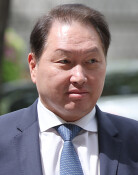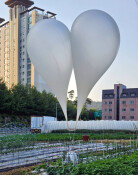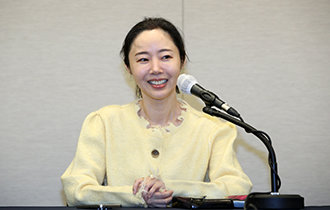[Editorial] Dont Eliminate 6,000 Jobs
[Editorial] Dont Eliminate 6,000 Jobs
Posted September. 25, 2006 07:04,
Hynix Semiconductor, a global top-tier DRAM manufacturer, plans to invest 13.5 trillion won to build three memory semiconductor plants in Icheon, Gyeonggi Province, where it is headquartered by 2010, but the government is about to disapprove the plan.
Icheon is green belt and there are environmental concerns, commented Kim Jong-gap, vice minister of commerce, industry and energy.
But it seems the real reason lies in the presidents ideology of balanced national development.
The government may want to direct the plants, which could create up to 6,000 jobs, to other provincial regions. It has been touting balanced development, but little has done to that end except for multifunctional administrative city construction and relocation of public corporations, which still remains a mere plans and could bring about unpredicted aftermath. But drawing lines between metropolitan areas, cities and provinces serves no other than political purposes when the entire nation is reachable within three to four hours, and even many Chinese industrial complexes are just one-hour flight away. The government should be more concerned about lost investment opportunities for high-tech industry and exodus of decent jobs to overseas countries. The government delayed and shrank the TFT-LCD plant of LG Philips in Paju, and Tangjeong Complex of Samsung Electronics. What good did the decisions do to Korean people?
Hynix opted for Icheon after considering two investment incentive plans presented by Icheon city and Cheongju city in Chungbuk Province. The government should support the decision. There is no reason whatsoever to push for the other location, 80km or an hour to the south. If Hynixs expansion in the metropolitan Seoul area materializes, similar investment plans will ensue. Fewer companies will move their production bases overseas.
Japan is witnessing boom in facility investment since 2003. The boom was triggered by large companies and manufacturing industry, and then expanded to SMEs and non-manufacturing sectors. The Japanese government launched large-scale deregulation to accelerate the virtuous cycle investment, attracting companies who moved out back to the home country.
Kwon O-kyu, vice prime minister and minister of finance and economy of Korea, is announcing comprehensive measures for business environment improvement this week, one of the pledges he made upon inauguration. But such a deregulation move will remain lip service if the government deprives companies of their right to decide on investment location. Timing is important for every investment decision, but even more so for high-tech industry. A few months of delay could lesson investment effect, competitiveness, and jobs that will be created. Once the exodus of plants accelerates, no brilliant measures will work.







